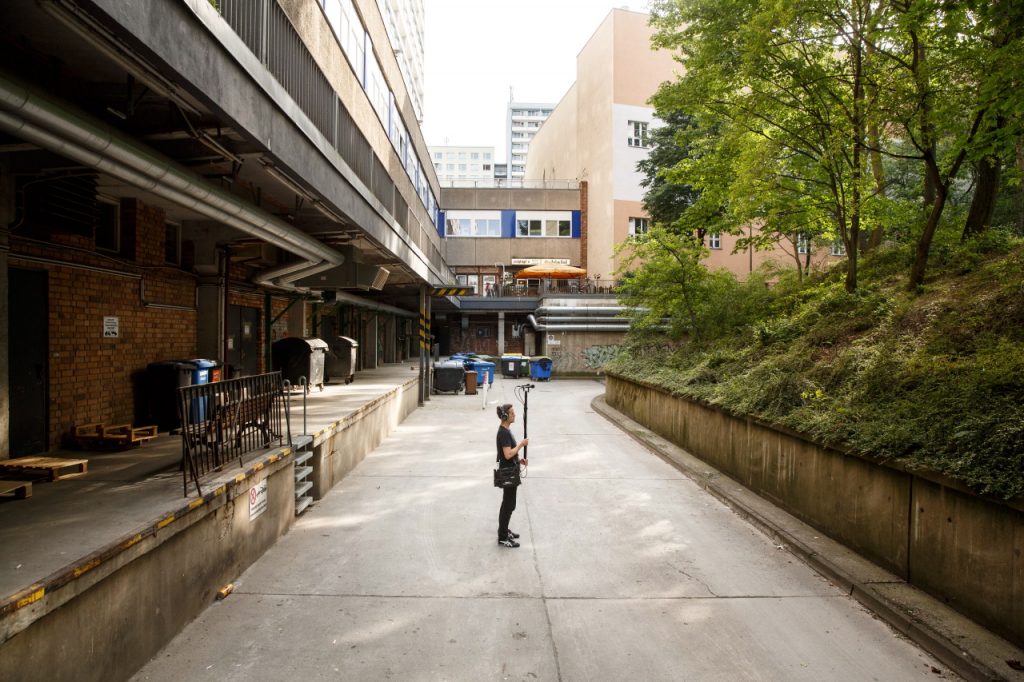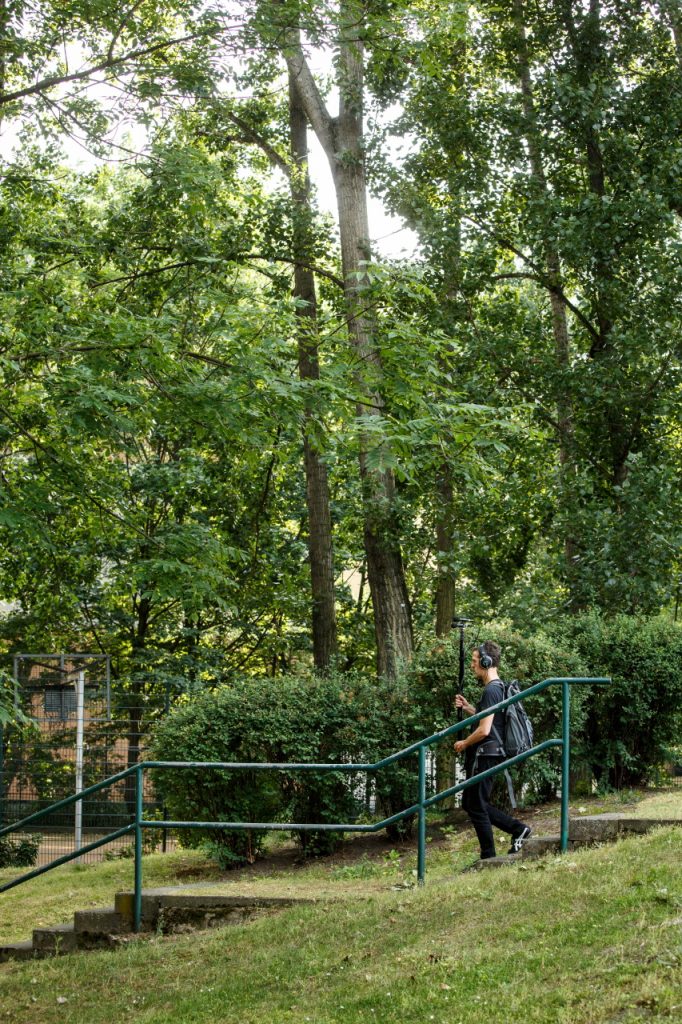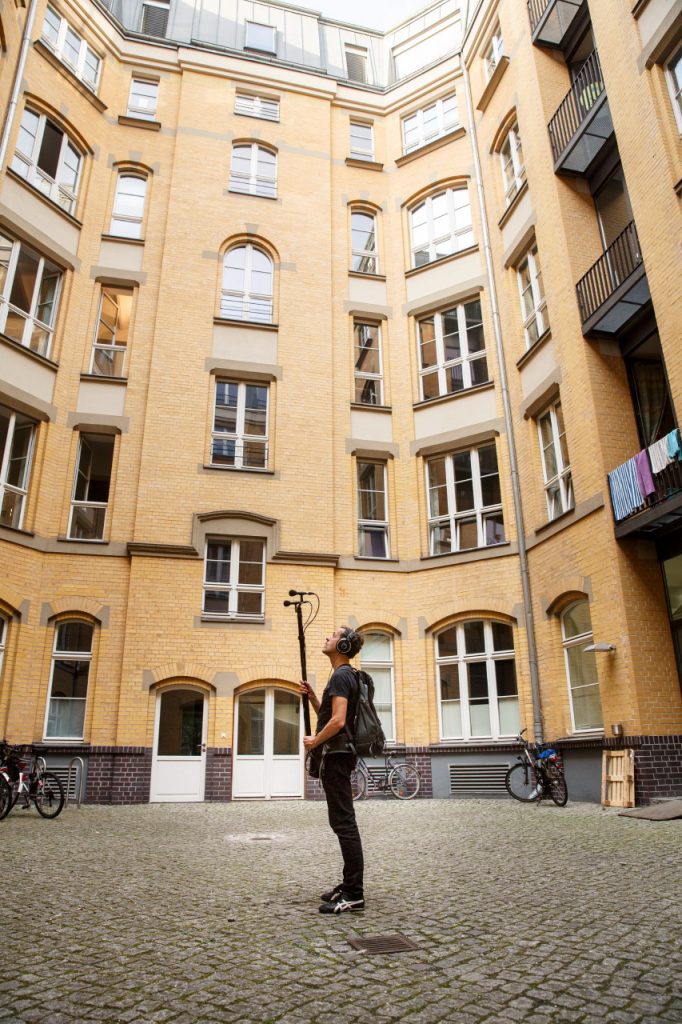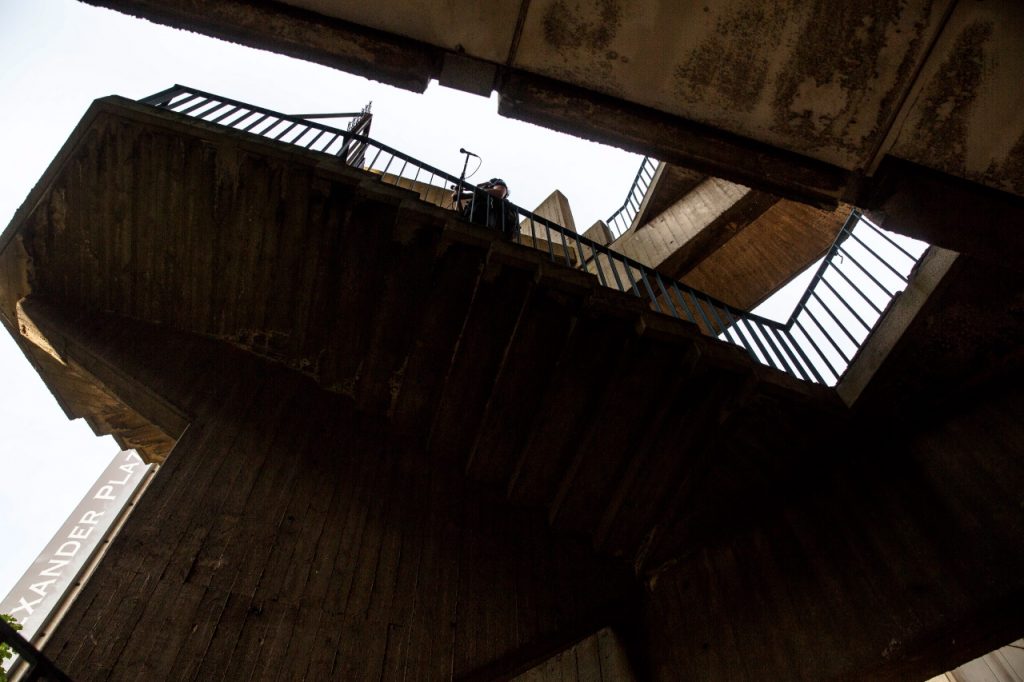This format, developed for the first time by Alex Arteaga in the framework of Architecture of Embodiment, takes established forms of essays in different media as its reference: text, video and photography. In this research cell, Alex Arteaga initiated the inquiry into the realization of this format in aural media.
Sounding the city: critical approaches to urban soundscapes, an international research workshop organized by FASE and hosted by the Instituto Cervantes in Berlin from June 11 to 13, 2014 provided a suitable framework to reflect on the possibilities of developing the essay as an auditory research practice. Through the realization of a first short study, the conceptual base and different strategies for the production of a sound essay were put to the test.
One of the goals was to identify constructive procedures in field recording and sound editing that would generate a radical alternative to the soundscape. In contrast to soundscapes, the sound essay does not depart from the existence of the sound environment independent from the acts of hearing in the territory which demarcates it geographically, but instead from its emergence due to the interaction between a perceiver—a hearer and listener—and the activities of her surroundings. Accordingly, sound-recording technologies cannot be understood and employed in order to capture and reproduce an environment, but simply to register those activities suitable to become objective correlates of aural phenomena.
According to the concept developed by Alex Arteaga in this research framework, a sound environment—a “Klangumwelt”— is not perceivable (see the conference paper Thinking the Environment Aurally and the book Klangumwelt Ernst-Reuter-Platz). It is a radically relational and processual whole that is partially constituted by sound objects but cannot be reduced to them. Therefore, the sound essay cannot aim to grasp and present the sound environment, but to open up new possibilities of participation in its process of emergence.



